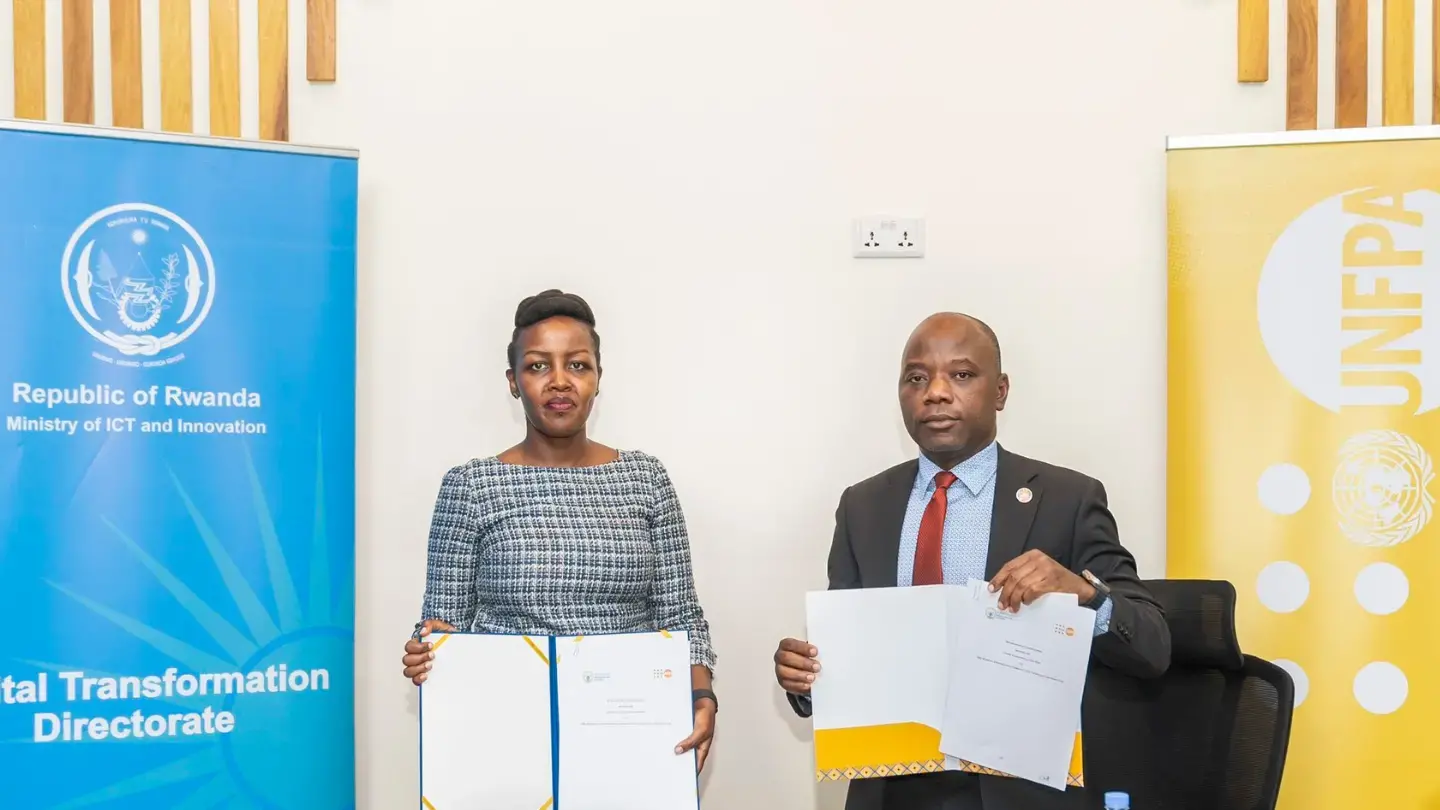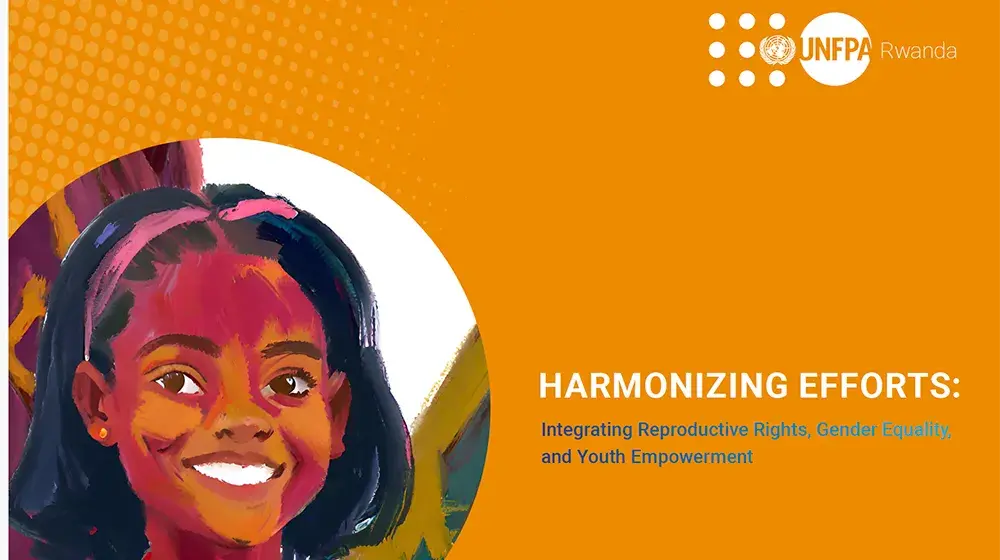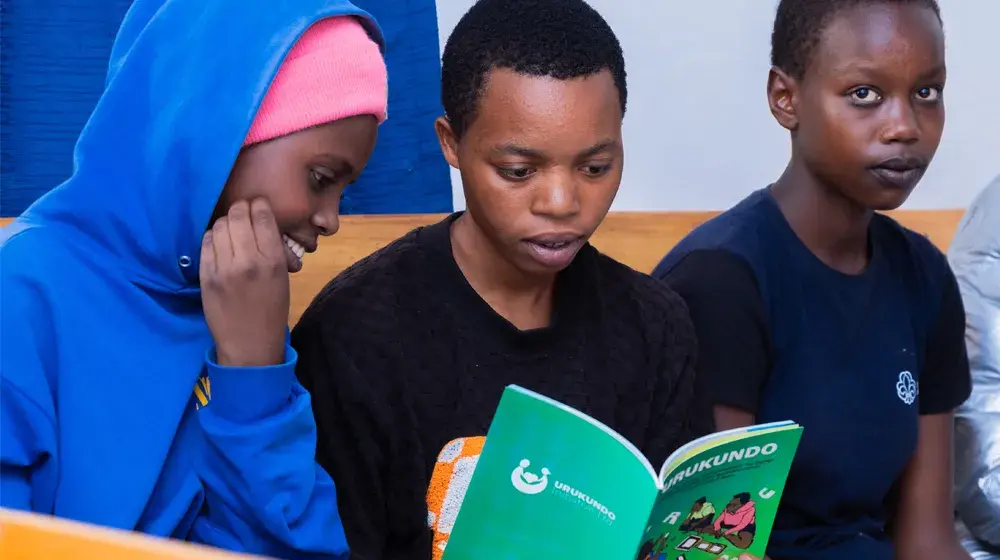In many cultures, sexuality education has often been a controversial issue that has exposed young people to sexual and reproductive health challenges such as teenage pregnancies, child marriages, and sexually transmitted infections. While the Government has put in great efforts to increase adolescent access to sexuality education, adolescents continue to face shame and stigma around menstruation and other violations of their human rights, including sexual harassment.
Young adolescent girls tend to be less prepared for Menstrual Health and suffer from anxiety, apprehension, fear, and shame. In addition, social taboos and cultural restraints during menstruation make the management of menstruation an even greater challenge. Gender inequality, extreme poverty, humanitarian crises, and harmful traditions can all turn menstruation into a time of deprivation and stigma, which can undermine their enjoyment of fundamental human rights.
Tuyishime Eric, 17, is a student at Groupe Scolaire Gasaka (Nyamagabe District), and a member of Gasaka good Health club, a student’s Adolescent and Youth Sexual Reproductive Health (AYSRH) health club counting more than 30 students from primary and secondary trained by Good Neighbors International (GNI) in partnership with UNFPA and Korea International Cooperation Agency (KOICA), the aid agency of the Government of the Republic of Korea as part of implementing the Healthy & Empowered Youth Project.
Just like his fellow boys and his peers from the Health Club, Tuyishime struggled to explain to his parents, neighbors, and other boys at school, how he joined a health club that discusses menstrual health.
“It is not easy to explain especially to my male friends that I am a member of a club that discusses girls’ issues such as menstruation. I have been sometimes insulted because of that” said Tuyishime, adding “In our community, menstruation is not something that is discussed publicly, and it is considered as a women issue only that men should not be concerned about”
Innovative solutions to tackle menstruation stigma
A variety of factors affect how people are treated during menstruation. One of these factors is the perception that menstruation is dirty or shameful. This view can contribute to self-imposed restrictions such as fearing to participate in school activities, athletics or social gatherings.
GNI organized a training for 20 Teachers from four schools within the host communities of Kigeme and Mugombwa refugee camps, including Groupe Scolaire Kigeme B, Groupe Scolaire Gasaka, Groupe Scolaire Mugombwa A, and Groupe Scolaire Mugombwa B. The training covered various topics such as adolescent development, GBV, menstrual hygiene management, sexuality, pregnancy prevention, counseling, life skills, etc. The Teachers returned to their schools and established integrated health clubs, where the club members learn about health in a fun way, including through music, poetry, and small club projects. Each Club has 30 core members who act as Change Agents and are called Ambassadors.
“Since joining Good Health Club, I have come to understand that the menstrual period is part of a girls’ life, and it is a normal thing to discuss like any other health issues. In our club we teach everyone especially boys to help our sisters feel welcomed in every activity even during menstruation period, that they shouldn’t be ashamed to be around us or play with us as they usually do and that it is our responsibility as boys to let them feel that way.” said Tuyishime.
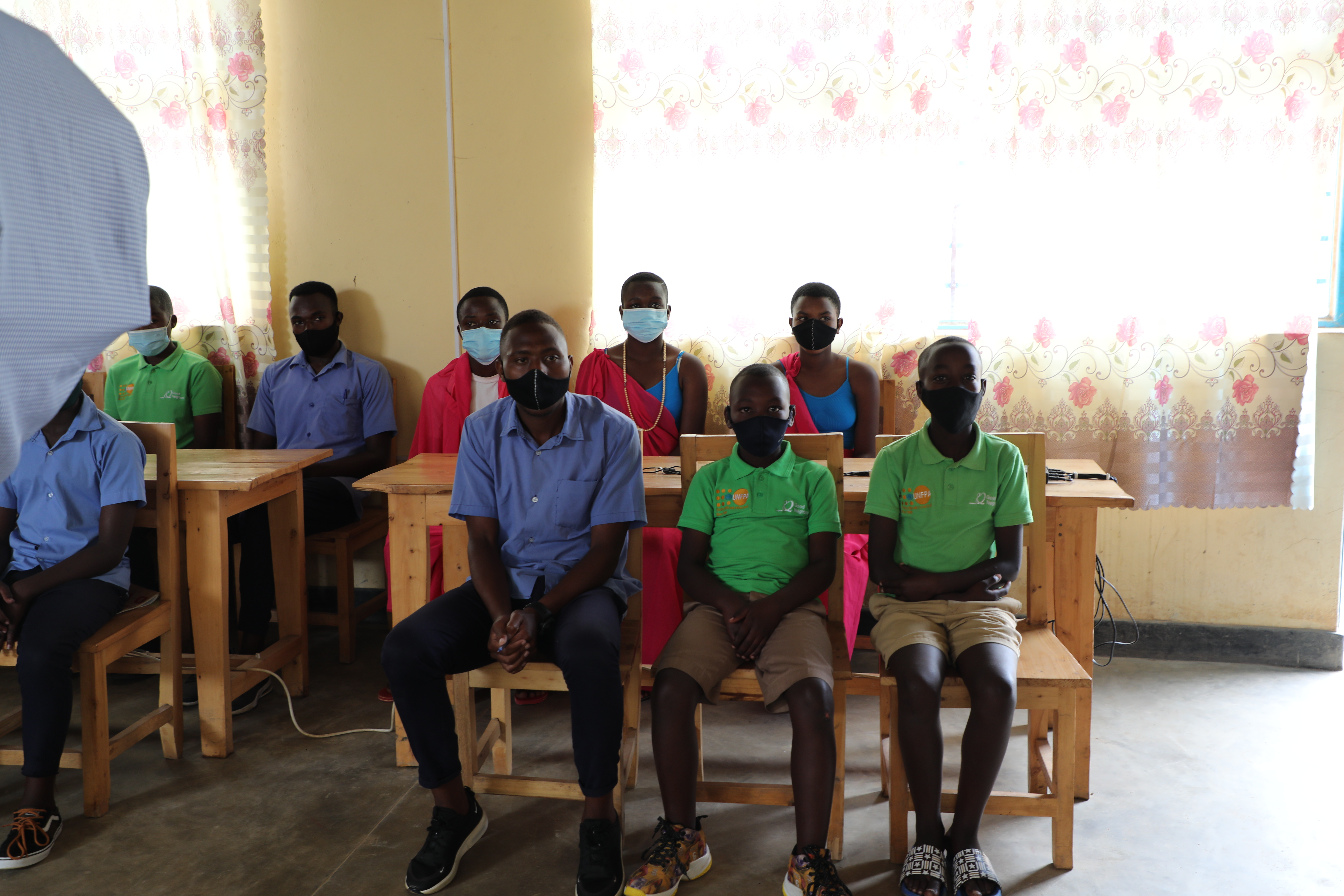
Silence and period poverty
Silence about menstruation can lead to ignorance and neglect, including at the policy level. This leaves women and girls vulnerable to things like period poverty and discrimination. Some young girls who join health clubs have never been taught by their parents or guardians anything about sexual reproductive health and rights making it difficult for them to ask any question or talk about menstruation.
Uwase Gloire, 12, a primary school student said “I didn’t know much about reproductive health. But since I started to participate in this club, I have learned about my body, I can now teach others. Before, I thought that boys also could have menstrual periods like us, but now I know the difference and can confidently and freely discuss with my classmates on topics related to sexual reproductive health. We no longer feel embarrassed to talk about menstruation especially with our fellow male members of the club.”
“It is a good thing that young boys feel concerned ever since they joined Good Health Club. They create a good environment for girls to express themselves freely and help them to not feel ashamed or left behind. Now it is often the boys who take the lead to advocate for girls when they lack menstrual hygiene products. They now know it is their responsibility as well to fight menstruation stigma” said Kanyana Honorine, teacher at Groupe Scolaire Gasaka
Difficulty affording menstrual products can cause girls to stay home from school and work, with lasting consequences on their education and economic opportunities. It can also exacerbate existing vulnerabilities, pushing women and girls closer toward dangerous coping mechanisms.
“UNFPA believes that access to sanitary towels is not a privilege but a human right. When the rights and choices of young people are neglected, many, especially girls, face dire consequences such as dropping out of school, living in a cycle of poverty, and childhood motherhood. School Health Clubs promote a brighter future for all.” said Mark Bryan Schreiner, UNFPA Representative to Rwanda
A recent UNFPA study on the status of Adolescent and Youth Sexual and Reproductive Health and Rights (AYSRHR) and well-being in three UNFPA-supported districts established that most students reported difficulties denying sexual requests from an adult, with Karongi at 34%, Nyamasheke at 27%, and only 10% in Rusizi. The situation is likely similar for young people in other parts of the country, including the humanitarian settings. Period poverty does not only include low-income to afford sanitary products but also related costs such as pain medication and underwear.
“We learned many things in our club that we have not been taught before including how to produce our own menstrual hygiene products. It helps us especially when our parents don’t have money for us to buy sanitary pads.”: IGIRANEZA Marie Souvenir, a member of the Good health club.
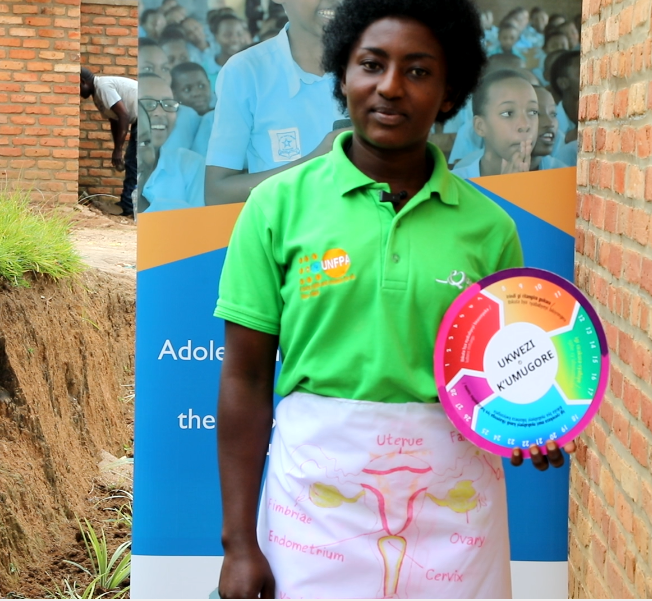
UNFPA promotes menstrual health information and skills-building and works to improve education and information about menstruation and related human rights concerns. Through its youth programs and comprehensive sexuality education efforts, UNFPA helps both boys and girls understand that menstruation is healthy and normal.


